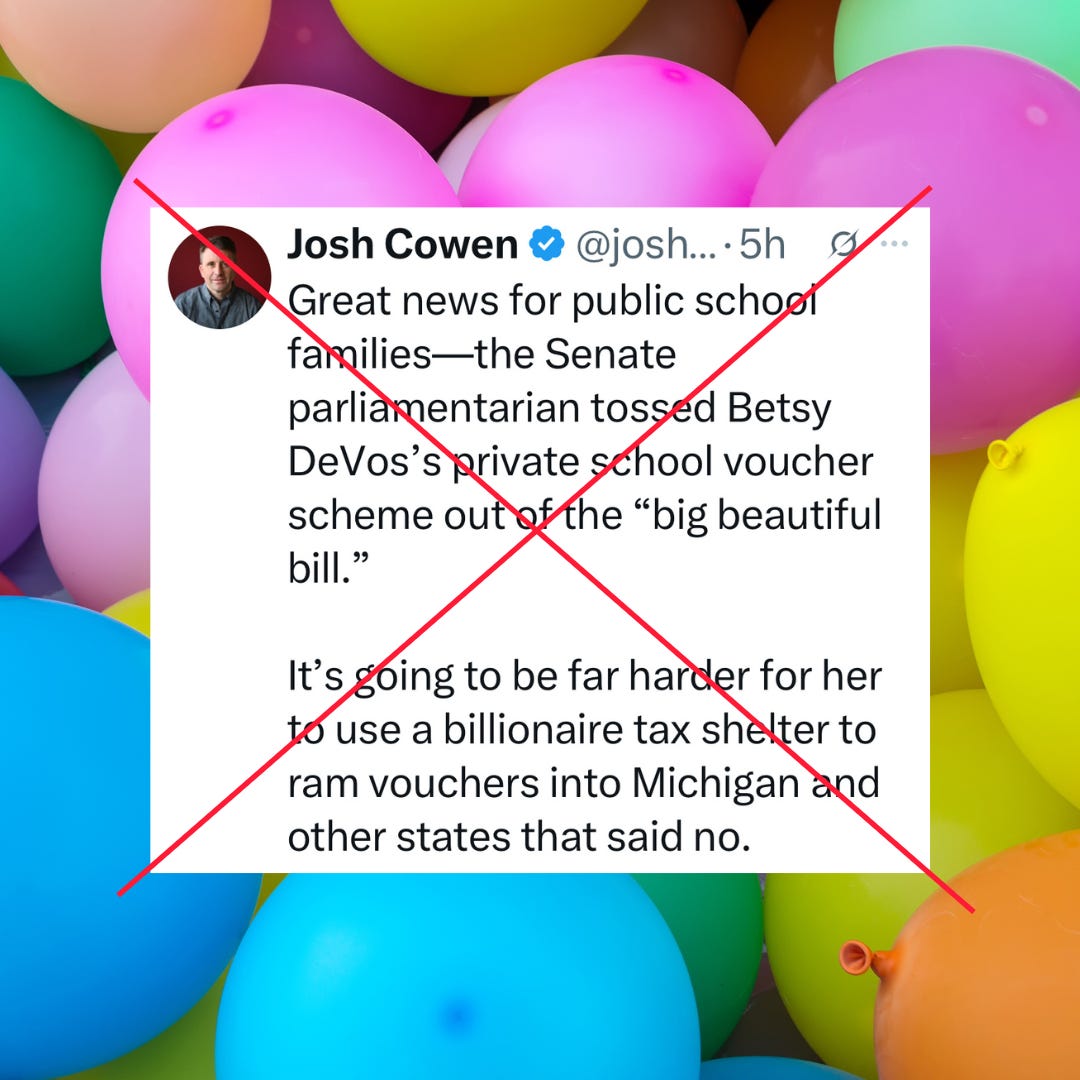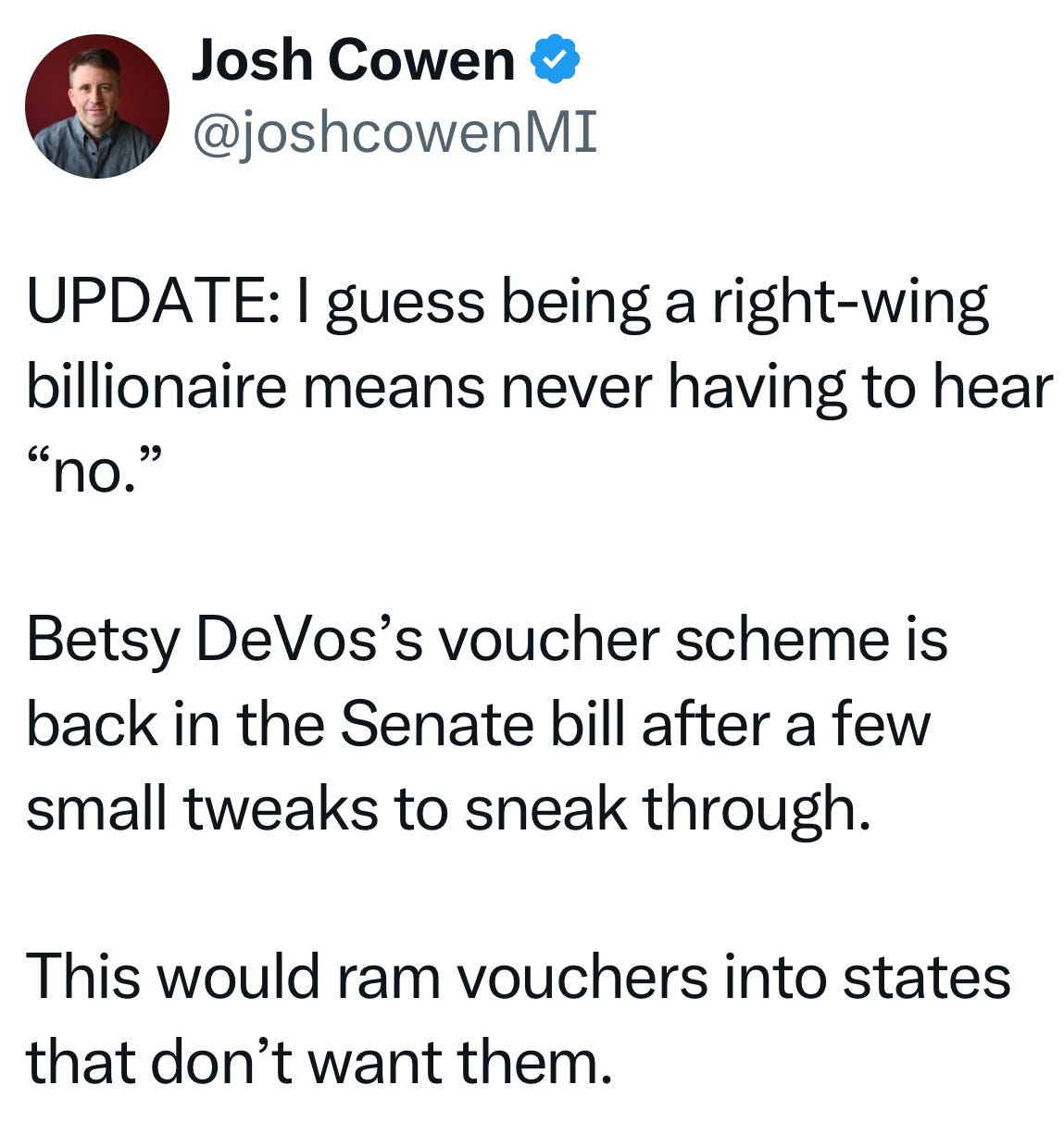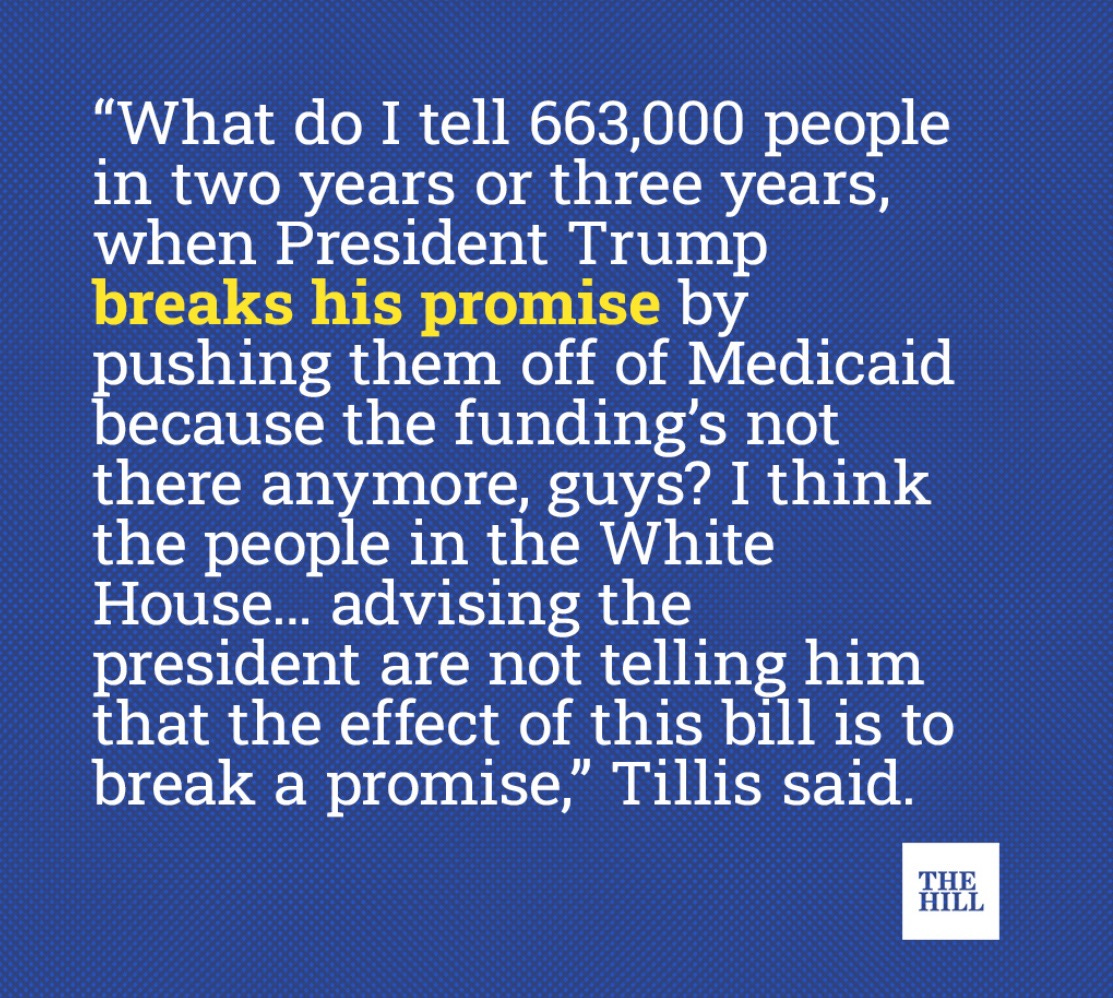Vouchers are back ($#&!?) and the Vote-a-rama is under way
The "big bad bill" — A quick update on where we are in the process, a new call script, and it's probably time to start calling our Representatives too.
Don’t miss the Take Action section with the updated call script.
Still time for calls and to recruit others to call today!
The Senate chose to reconvene at 9 am this morning to start the Vote-a-rama (voting on amendments to the bill), instead of starting while most of us were sleeping after debate ended around 1 am.
This gives us more time. They will be voting on amendments all day long with the final vote expected this evening or possibly after midnight.
We should also go ahead and start calling House Representatives today and through the next couple of days. If this bill passes in the Senate, the House is expected to vote this Wednesday in an attempt to make Trump’s self-imposed July 4 deadline.
Spoke too soon on school vouchers
I was hesitant to share the news when the voucher program was initially forced out of the “big bad bill” by the Byrd Rule, but it felt so nice to have something to celebrate. Unfortunately, I learned this morning that these things have a way of coming back around.
Some sort of change must have been made to get around the Byrd Rule, but I get the sense the voucher program itself likely hasn’t changed much.
For those who are unfamiliar with the proposed voucher program, it is egregious in the way that it provides a tax avoidance scheme for the ultra-wealthy as it shifts federal funds to private schools while our public schools are weakened. This short video from the American Federation of Teachers does a great job of explaining how it works.
Clicking on the image above should take you to the video on Instagram (you might click a second time if it doesn’t open to the video right away). If that doesn’t work, try this link to the video on YouTube.
The Reconciliation process so far
It took 16 hours for this massive bill to be read in its entirety on the chamber floor. Thankfully, they had multiple clerks who were able to take turns reading it.
Democrats shared their opposition to the bill during their 10 hours of debate and Republican Senator Thom Tillis (NC) also spoke passionately against the bill. Tillis announced his retirement on Sunday after Trump unleashed a tweet Saturday night saying he would be meeting with candidates to primary Tillis if he ended up voting no on the final bill.
TAKE ACTION — Contact Info and New Call Script for Senators & Reps
As mentioned above, it is probably time to start contacting our House Representatives who will be voting on this bill as early as Wednesday if it passes in the Senate.
Contact Information for Senators
If you live outside of Kansas, use ksleglookup.org/search to find your state senators.
SEN. JERRY MORAN — he is the key senator to contact so I’m listing all of his numbers. Leave a message, but try to reach a person if you can.
Washington, D.C.: (202) 224-6521
Hays: (785) 628-6401
Manhattan: (785) 539-8973
Pittsburg: (620) 232-2286
Wichita: (316) 269-9257
Olathe: (913) 393-0711
Garden City: (620)-260-3025
SEN. ROGER MARSHALL
D.C. #: (202) 224-4774
Email portal
Local district office locations and phone numbers
Contact Info for Representatives
Enter your address at ksleglookup.org/search to find your federal level representative and their contact information. Although all of us in Kansas share the same senators, we each have a different US Representative depending on where we live. That link can also be used for folks outside of Kansas.
Pro Tip
I haven’t mentioned this in a while, but go ahead and save the contact info for your two federal level senators and your representative in your phone. I get the feeling we may need to call them from time to time over the next four years.
Call Script
My name is _____________. I’m calling from [city], zip code _________. I’m asking the [Senator/Representative] to vote no on the budget reconciliation bill. The cuts to Medicaid and SNAP in this bill will hurt our most vulnerable Kansans — children, the elderly, and individuals with disabilities. The steep Medicaid cuts will also threaten the closure of more hospitals, hurting the health and economies of our rural communities.
I also urge the [Senator/Representative] to support amendments to remove the voucher program from this bill. Instead of providing a $5 billion tax avoidance scheme for the ultra-wealthy to fund private schools, we should be using that money to shore up special education funding and to invest in our public schools that educate 90% of children.
Honestly, there are so many bad things in this bill, it is difficult to speak to all of them (my newsletters would be way too long). Public education is a a passion of mine, so that is where I tend to focus. But, when making calls, please feel free to list off any and all issues that concern you. The staffers answering the phones or listening to the messages will tally each of the issues you mention.
A sampling of other concerning things in this bill
This was a list I included in a previous newsletter and it is truly just a sampling of the harmful things in the bill. I removed a couple of the things on the previous list that are no longer in the bill, such as the sale of public lands. I will say, I am not confident where each of these issues currently stands considering deals that have been made with Senators and final Byrd Rule rulings.
Provision to block any funding to enforce contempt of court orders; could enable the Trump administration to flout the rulings of judges without consequence. (I assume this is still in the bill)
a 10-year ban on the enforcement of all state and local laws that regulate artificial intelligence (AI), including rules for AI’s use in political campaigns and elections. (This may have been changed to a 5 year ban with some other limitations to gain Senator Marsha Blackburn’s vote.)
Eliminates major tax credits for wind and solar
Failure to extend tax credits for coverage under the Affordable Care Act; literally what makes the health insurance coverage affordable for those with lower incomes
an increase of $4 trillion in the budget deficit









